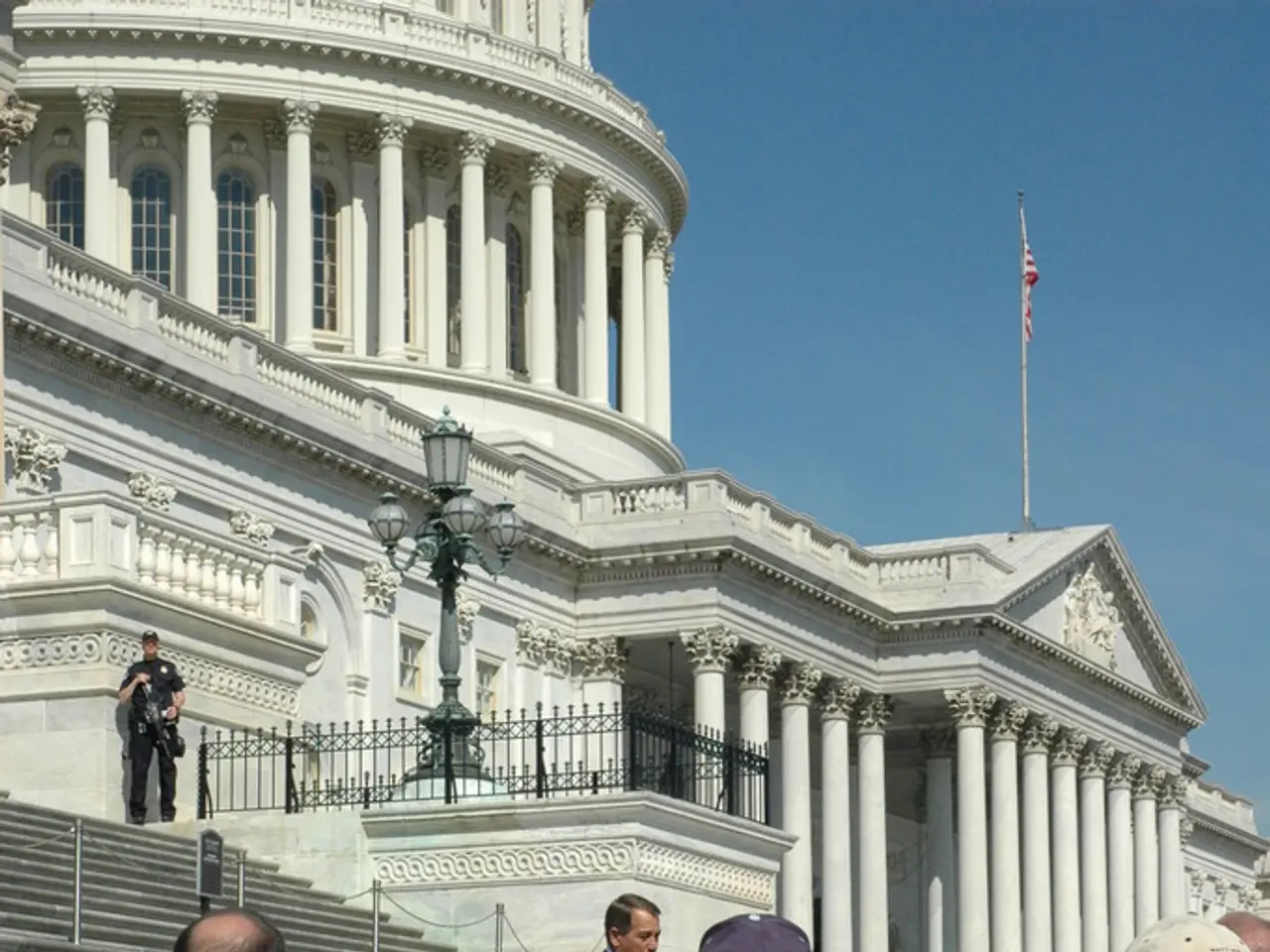SEC Postpones Trump-Endorsed Bitcoin ETF and Significant Crypto Investment Funds Once More
In a move that underscores the ongoing regulatory scrutiny of digital asset firms, the U.S. Securities and Exchange Commission (SEC) has delayed its ruling on the proposed Truth Social Bitcoin exchange-traded fund (ETF). The decision, which was initially set for August 4, has been extended to September 18.
The proposed Truth Social Bitcoin ETF is a venture tied to Trump Media & Technology Group, and if approved, it would mark a first in the U.S. with direct ties to a president's business entity. However, Democratic Senators such as Elizabeth Warren and Jeff Merkley have raised alarms about potential conflicts of interest.
The SEC's cautious approach towards crypto ETFs is not limited to the Truth Social Bitcoin ETF. The regulator has also paused Bitwise's attempt to convert its crypto index fund into an ETF. Additionally, decisions on Grayscale's Solana Trust and Canary Capital's proposed Litecoin ETF have been delayed due to ongoing regulatory concerns around market manipulation, investor protection, and the lack of a clear regulatory framework for altcoin ETFs.
The SEC's hesitancy stems from the novelty and complexity of these products, with the regulator seeking more data and clearer fund structures before approval. The extended review period and openness to updated filings suggest the SEC is gradually adapting to emerging crypto use cases such as staking but remains cautious about potential risks.
The SEC's deliberate approach reflects a broader regulatory strategy. The delay indicates that the SEC is taking a methodical and stringent stance on crypto ETFs beyond Bitcoin, emphasizing transparency, market surveillance, and the safeguarding of investors amid a rapidly evolving digital asset landscape. The outcome of these reviews could set important precedents for future altcoin ETFs, influencing how crypto ETFs are structured and regulated in the U.S., including the adoption of clearer guidelines and perhaps a framework that balances innovation with consumer protection.
Meanwhile, JPMorgan is signalling a potential shift in banking by considering backing crypto ETFs for loans. This development underscores the growing interest in digital assets within traditional financial institutions.
As the SEC navigates the complex world of crypto ETFs, the future of these investments remains uncertain. However, one thing is clear: regulatory clarity and investor security remain paramount considerations in the approval process.
[1] https://www.reuters.com/business/us-regulators-weigh-crypto-etfs-amid-market-manipulation-concerns-2022-07-15/ [2] https://www.bloomberg.com/news/articles/2022-07-27/trump-s-truth-social-is-moving-to-list-a-crypto-etf-on-the-nyse [3] https://www.wsj.com/articles/sec-delays-decision-on-trump-social-bitcoin-etf-amid-ongoing-regulatory-concerns-11659075933 [4] https://www.cnbc.com/2022/07/27/trump-social-media-company-truth-social-to-list-crypto-etf-on-nyse.html
Technology's advancements in the finance sector have led traditional institutions like JPMorgan to consider supporting crypto ETFs for loans, indicating a growing interest in digital assets. Amid this growing interest, the SEC's deliberate approach towards crypto ETFs, including the Truth Social Bitcoin ETF, emphasizes the importance of regulation in ensuring investor security and transparency.




